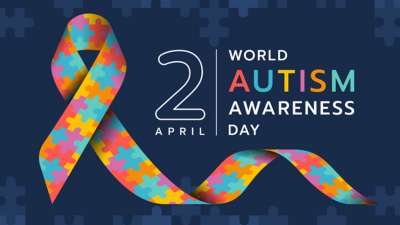Expert debunks 5 common myths about autism, full details
Thu 08 May 2025, 20:59:19

Autism in children is recurrently tied to an array of misconceptions. These often create misunderstandings that influence how they are perceived, treated, or assisted in day-to-day life. From myths about their emotional strengths to assumptions pertaining to their behaviours, the notions can give rise to stigma and impede their access to optimal care and education. Therefore, it is critical to bust a few of such persistent myths.
Myth 1: Children with autism can be cured.
Fact: According to Dr Sonam Kothari, Pediatric Neurologist, autism is not something that can be entirely cured, while they can make substantial progress with correct support. Still, appropriate intervention and customised therapies can benefit children in refining skills and confronting challenges.
Myth 2: Autistic children lack emotional depth.
Fact: They undergo all types of emotions, just like others. However, the difference lies in their capacity to completely express it. Autistic children may attempt to voice their feelings differently, as they face difficulty in understanding others’ emotions.
Myth 3: Special education is a prerequisite for autistic children.
Fact: Some children progress from special education services; however, others may mature in systematic classrooms with due accommodations and support. For autistic children, education schemes must be individualised depending on their defined strengths and challenges. Merely presuming all autistic kids
entail a comparable schooling overlooks their diverse capabilities.
entail a comparable schooling overlooks their diverse capabilities.
Myth 4: Autism in children can be noticeable.
Fact: In many instances, the signs of autism may not be physically manifest; they are ‘invisible.’ At the outset, the children may appear to be experiencing issues with communication, sensory perceptions, or social cues. Thus, judging whether s/he might be autistic based on appearance or behaviour alone reinforces misconstruction.
Myth 5: Boys are most affected by autism.
Fact: Autism is not a sex-specific condition. Though, in several cultural settings, it may exhibit differently in girls and women, leading to underdiagnosis, misdiagnosis, or a diagnosis that is received quite later in life.
Conclusively, dissipating myths about autism in children is fundamental to nurturing a more informed, inclusive, and compassionate society. By raising awareness, one can empower carers, educators, and communities to support these children in attaining their potential. Understanding that each of them is unique and that appropriate intervention can have an important impact allows one to think beyond stereotypes and build environments where all children feel valued and supported.
Disclaimer: (Tips and suggestions mentioned in the article are for general information only and should not be construed as professional medical advice. Always consult your doctor or a dietician before starting any fitness programme or making any changes to your diet.)
No Comments For This Post, Be first to write a Comment.
Most viewed from Health
AIMIM News
Latest Urdu News
Most Viewed
May 26, 2020
Should there be an India-Pakistan cricket match or not?
Latest Videos View All
Like Us
Home
About Us
Advertise With Us
All Polls
Epaper Archives
Privacy Policy
Contact Us
Download Etemaad App
© 2026 Etemaad Daily News, All Rights Reserved.

























.jpg)
.jpg)
.jpg)


